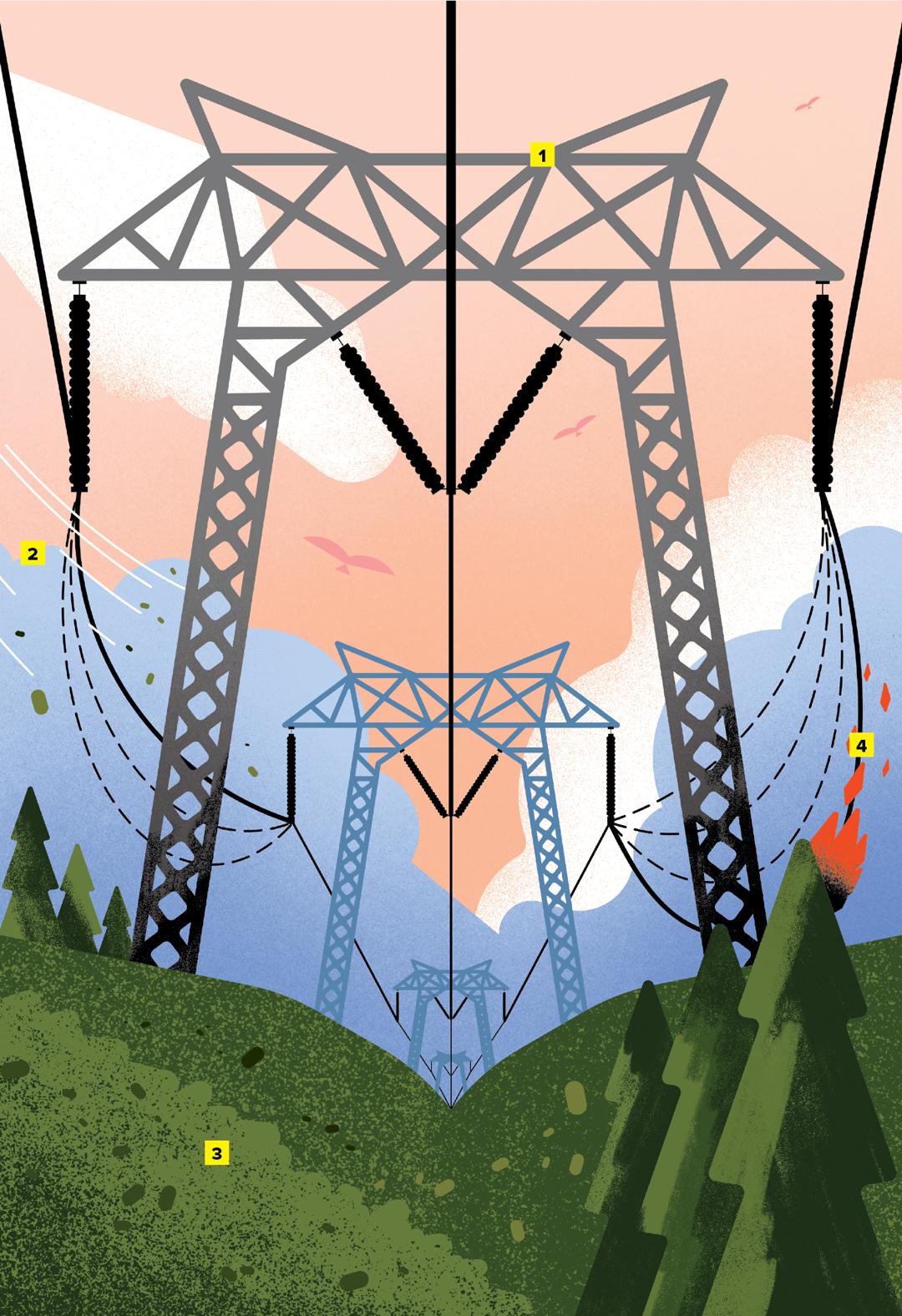Electric power systems ignited at least five of the top 20 most destructive California wildfires between 2016 and 2020, according to data from the California Department of Forestry and Fire Protection. As prevention, California electric utilities are authorized to conduct Public Safety Power Shutoffs—causing blackouts that affect millions of people and that impact medical devices, traffic lights and the like. When is a shutoff necessary? Can wildfires sparked by power systems be prevented?
Research by Paolo Bocchini, professor of civil and environmental engineering and founder of Lehigh’s Catastrophe Modeling Center, and doctoral student
Xinyue Wang provides the methodology for predicting when powerline ignition is likely in high winds. The study is published in Scientific Reports-Nature.
The first-of-its-kind research can help decision-makers determine when a shutoff is warranted, as well as help vegetation managers in allocating resources to minimize risk, Bocchini says.
1 ELECTRIC POWER SYSTEM
Spanning long distances, electric power systems carry high-voltage electricity across variable terrains and can spark catastrophic wildfires in the event of high winds and dry weather conditions.
2 WIND FACTOR
High winds can cause conductor cables to oscillate in such a way that they become close to surrounding dry vegetation. Additionally, the high winds could
cause broken trees and limbs to fall into the conductors, as well as hinder firefighting efforts.
3 VEGETATION GROWTH AND CLEARANCE
The dry vegetation acts like fuel. To reduce risk, regulations call for a minimum distance between conductors and vegetation. Typically, only low-growing vegetation is allowed in a “wire zone.” Taller shrubs and small trees may be permitted in border zones.
4 CONDUCTOR SAG AND SWAY
Transmission conductors sag and sway in the wind. Thus, rights-of-way are usually much wider than what is needed for the structures. Wind intensity
and vegetation clearance policies are major factors affecting the probability of encroachment.





